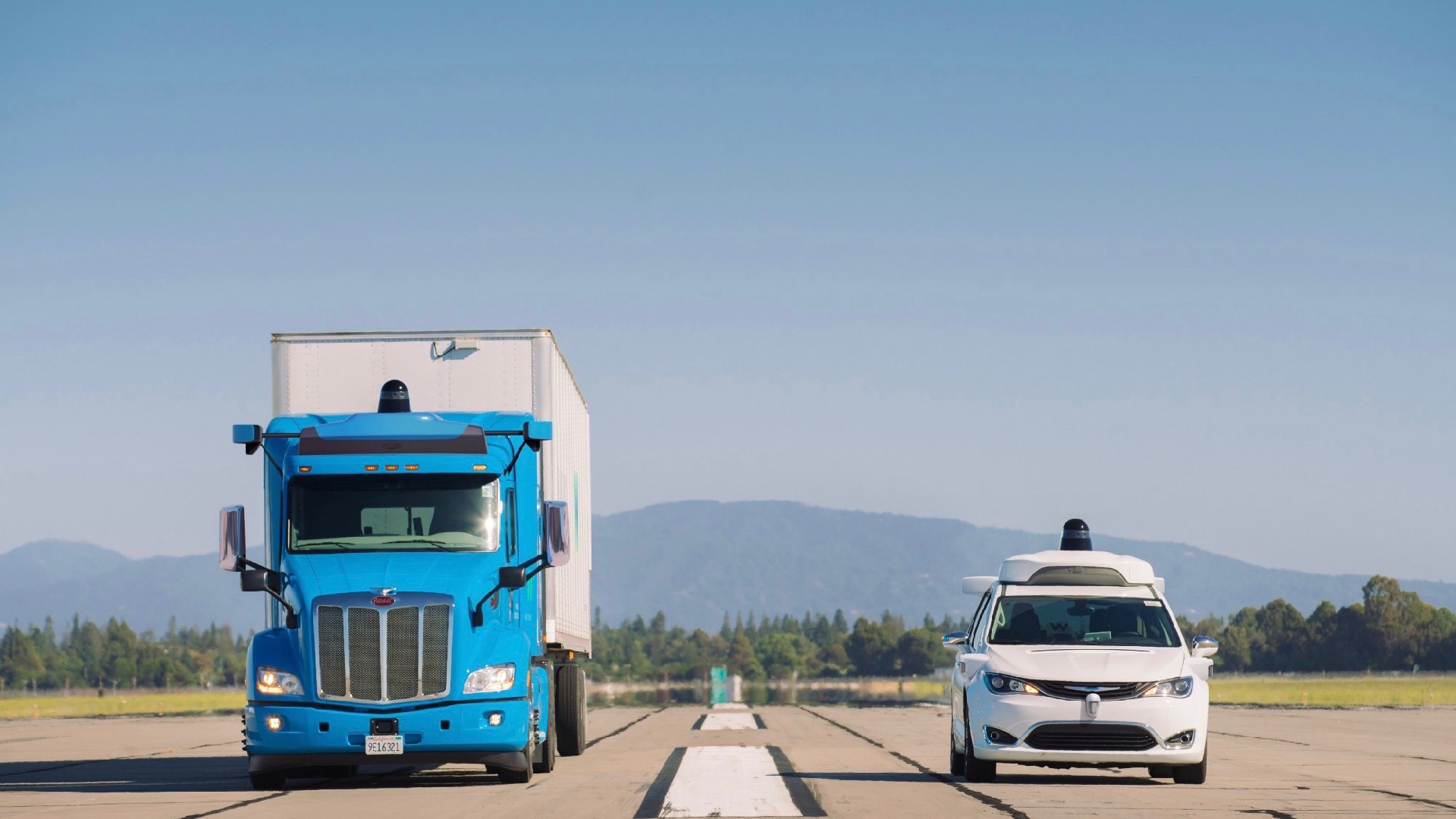

The lawsuit may be over, but Waymo isn’t done fighting with Uber. Just as Uber is ramping up its autonomous-truck development program, Waymo is launching a self-driving truck pilot of its own. Waymo’s announcement ends months of rumors that the former Google self-driving car project would attempt to rival Uber with robo-trucks.
The Waymo self-driving trucks will operate in Atlanta, Georgia where the company’s self-driving cars already roam. The trucks will haul cargo between Google data centers in the area. Human drivers will be onboard at all times to monitor things and take control if needed.
Waymo describes autonomous trucks as a case of “same driver, different vehicle,” with the “driver” in this case being the hardware and software that replaces humans. Waymo said its trucks will use essentially the same sensor suite as its Chrysler Pacifica minivans, and similar software. For Waymo, the Atlanta trucking pilot is a demonstration of how adaptable its autonomous-driving system is.
Waymo said it has been testing self-driving trucks in California and Arizona for the past year. A main focus of the testing has been teaching software to “learn” the differences between driving a semi truck and a regular car. Rather than write completely new software, Waymo claimed it just needed to adapt existing software to the unique driving conditions of big rigs.
It may be one of the biggest names in self-driving cars, but Waymo has some catching up to do with self-driving trucks. Uber recently announced that its autonomous trucks are hauling cargo in Arizona. Recall that Uber’s self-driving truck program started out as Otto, the startup at the center of the recently-settled trade-secrets court case between Uber and Waymo.
In addition, startup Embark sent a semi-autonomous truck on a cross-country trip between California and Florida earlier this year, and is now working with Frigidaire and Ryder to deliver refrigerators. Chinese startup TuSimple plans to launch an autonomous-trucking service in Arizona next year.